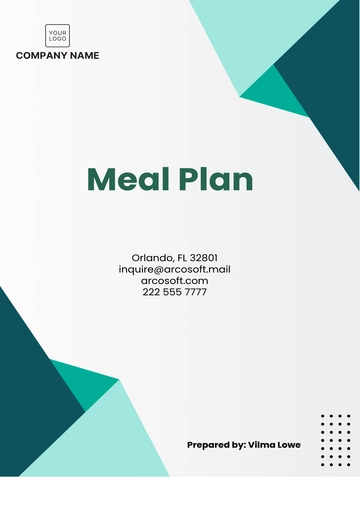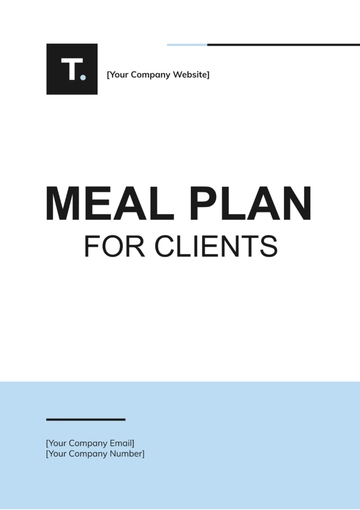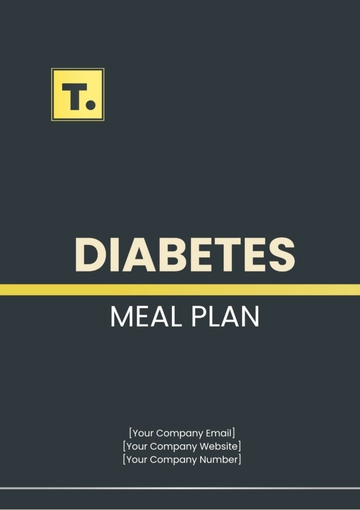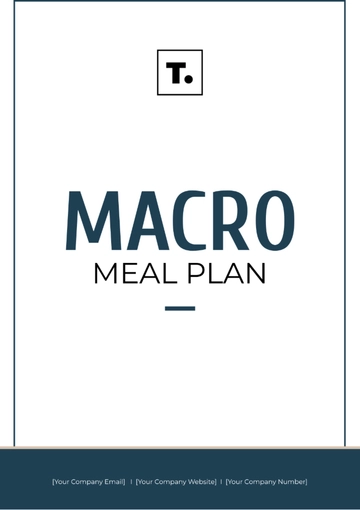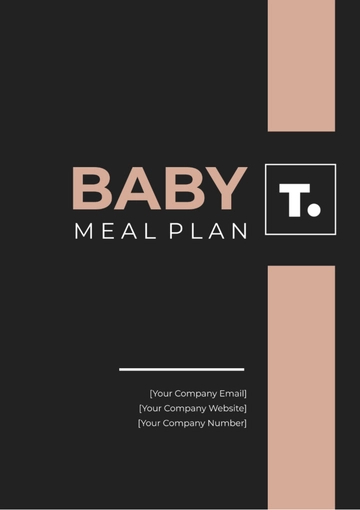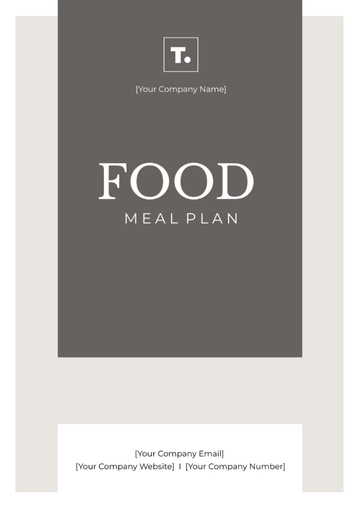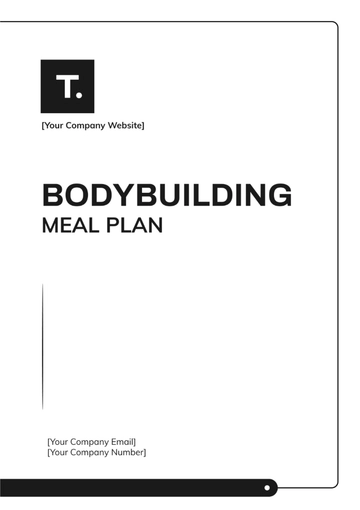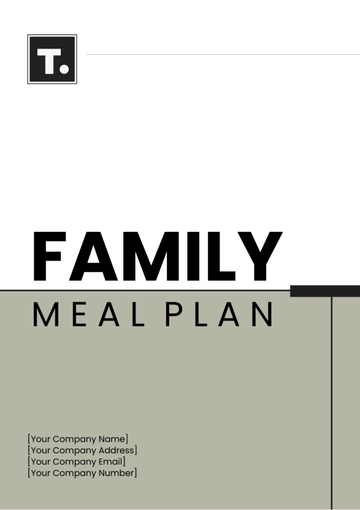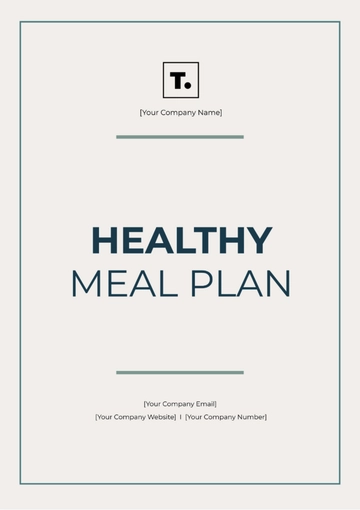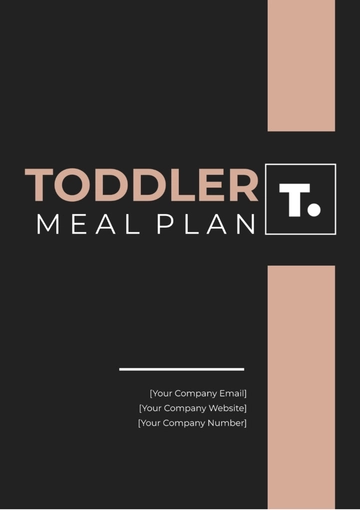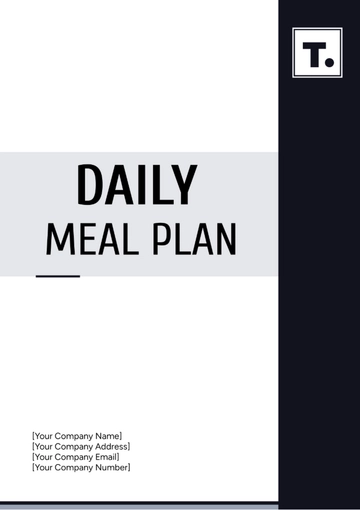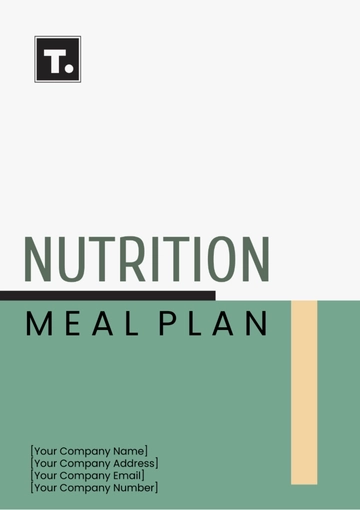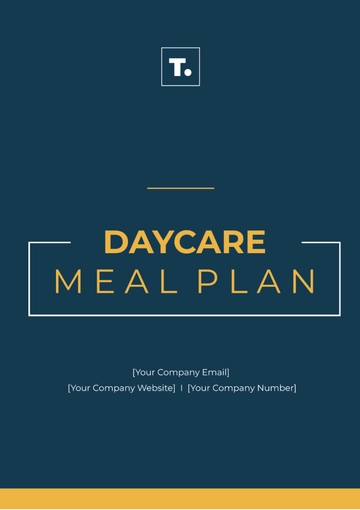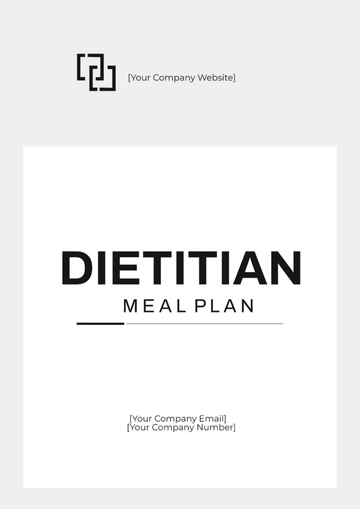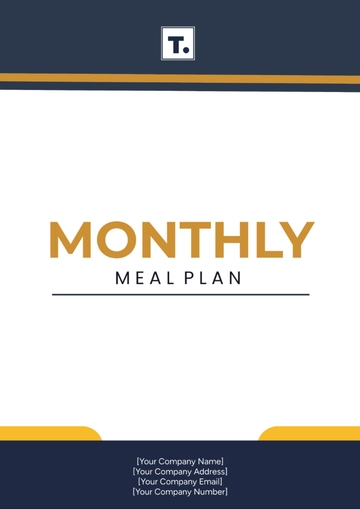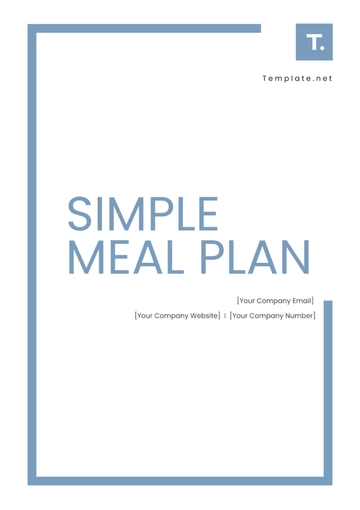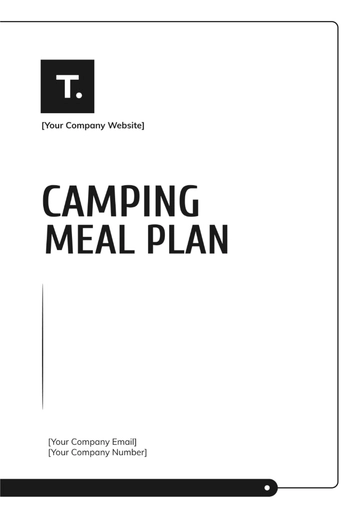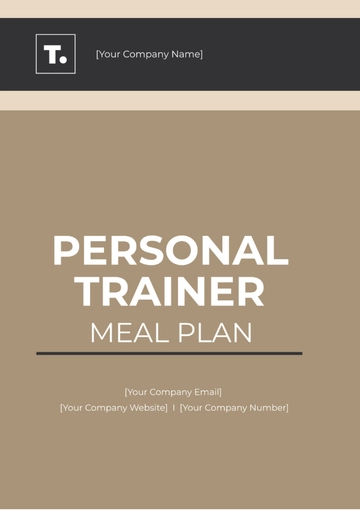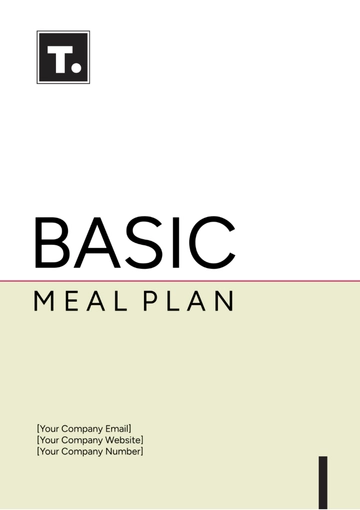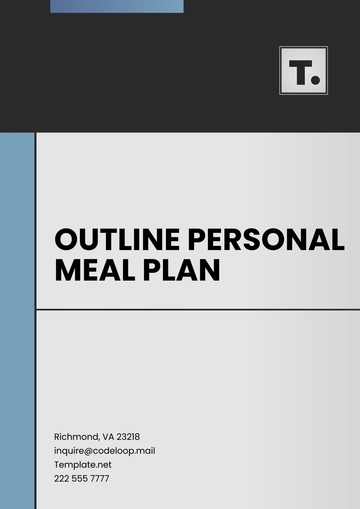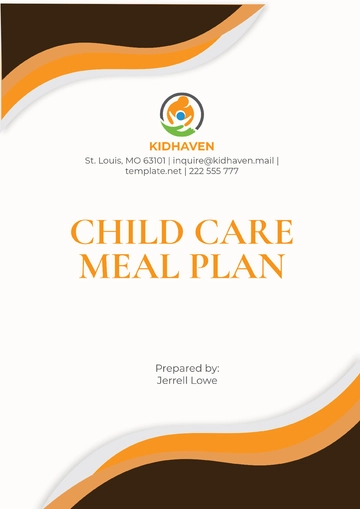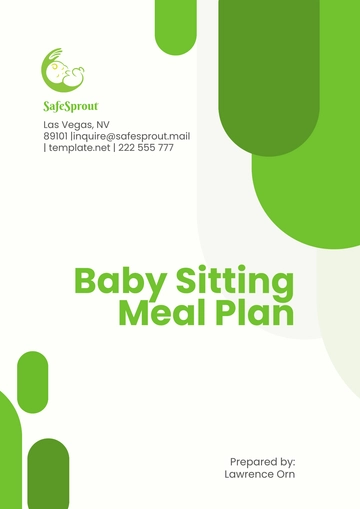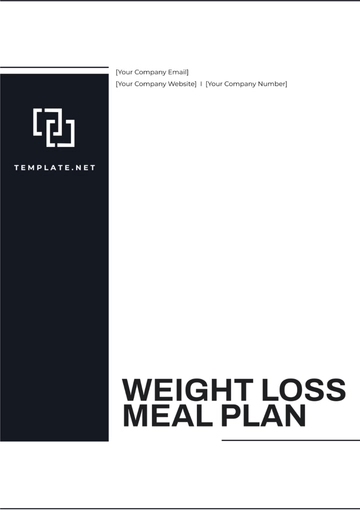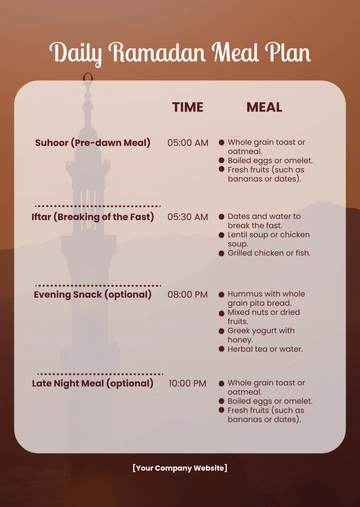Free Nursing Home Nutrition and Meal Plan
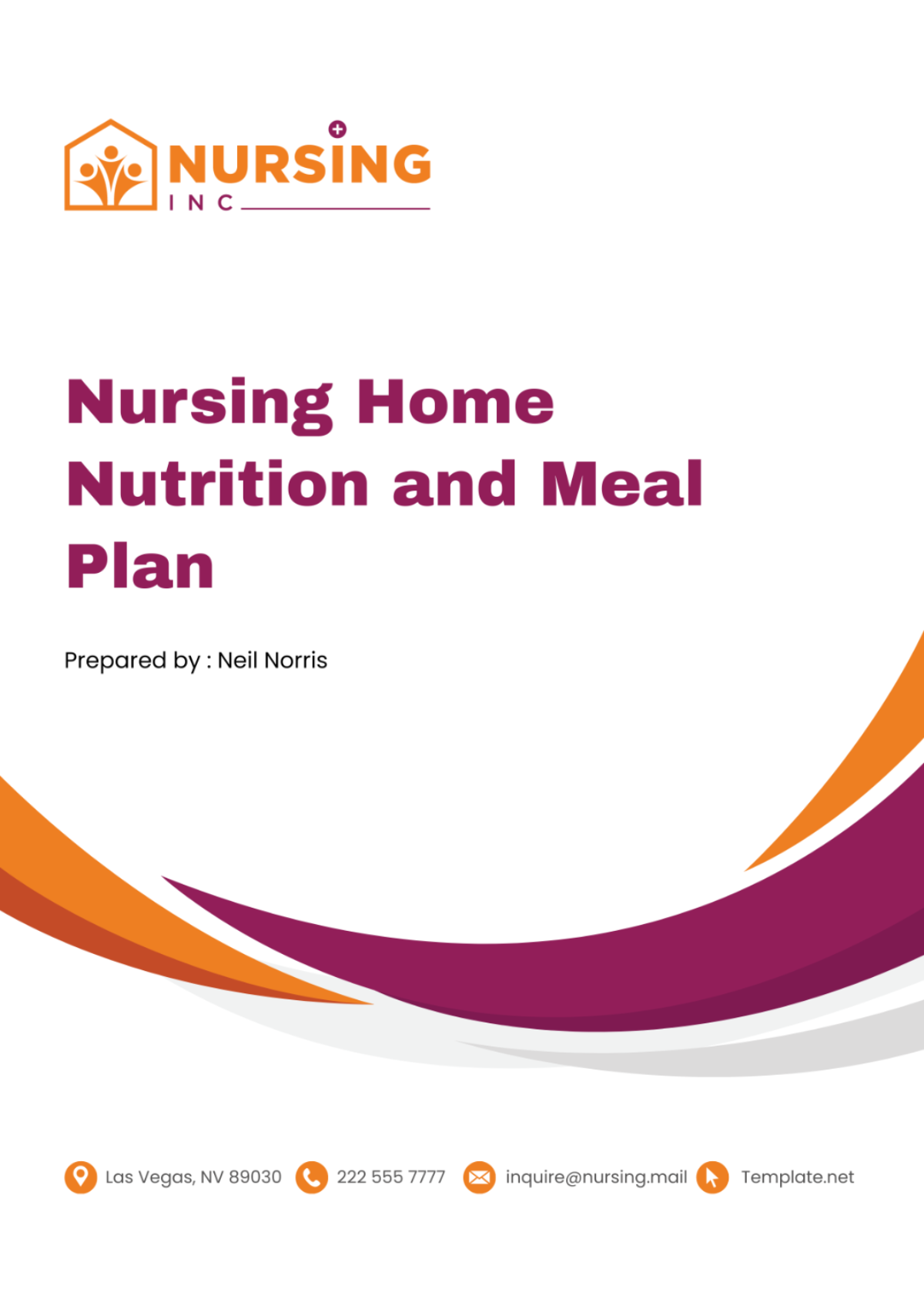
A. Nutritional Assessment and Individualized Care Plan
At [Your Company Name], we prioritize the health and well-being of our residents by implementing a comprehensive Nutritional Assessment and Individualized Care Plan. Upon admission, each resident undergoes a meticulous nutritional assessment conducted by our team of qualified healthcare professionals. This assessment delves into various aspects of the resident's health, including their medical history, dietary restrictions, allergies, and specific nutritional needs based on existing health conditions. By gathering this vital information, we gain insight into the unique dietary requirements of each resident, allowing us to tailor our meal plans to meet their individual needs effectively.
Following the nutritional assessment, our dedicated staff collaborates to develop an individualized care plan for each resident. This plan serves as a roadmap for crafting personalized meal plans that prioritize the resident's nutritional requirements and preferences. Whether a resident requires a specialized diet due to diabetes, heart disease, or other medical conditions, our team ensures that their dietary needs are met with precision and care. By focusing on individualized care plans, we aim to enhance the overall health and quality of life of our residents, promoting optimal nutrition and well-being throughout their stay at our facility. At [Your Company Name], we are committed to providing exceptional care that addresses the diverse nutritional needs of our residents, fostering a supportive environment where health and wellness thrive.
B. Menu Planning
Menu planning is a fundamental aspect of our nursing home nutrition program at [Your Company Name]. We understand the importance of providing residents with nutritious and delicious meals that cater to their individual dietary needs and preferences. Our menu planning process ensures that each meal aligns with residents' nutritional guidelines, food preferences, and cultural inclinations, promoting a diverse and satisfying dining experience.
Meal | Mon | Tues | Wed | Thurs | Fri | Sat | Sun |
|---|---|---|---|---|---|---|---|
Breakfast | Whole Grain Cereal, Skim Milk, Fresh Fruit | Omelette with Vegetables, Whole Wheat Toast | Greek Yogurt Parfait with Berries | Scrambled Eggs, Turkey Bacon, Whole Wheat English Muffin | Pancakes with Maple Syrup, Turkey Sausage | Veggie Frittata, Whole Wheat Bagel | Belgian Waffles with Fresh Fruit Compote |
Lunch | Grilled Chicken Salad, Balsamic Vinaigrette | Lentil Soup, Turkey Sandwich on Whole Grain Bread | Baked Salmon, Quinoa Pilaf, Steamed Broccoli | Turkey Chili with Cornbread | Spinach Salad with Grilled Shrimp | Vegetable Stir-Fry with Brown Rice | Roast Beef, Mashed Potatoes, Green Beans |
Dinner | Spaghetti with Marinara Sauce, Garlic Bread | Lemon Herb Roast Chicken, Roasted Sweet Potatoes | Black Bean Tacos, Spanish Rice, Guacamole | Beef Stir-Fry with Mixed Vegetables, Brown Rice | Grilled Mahi-Mahi, Wild Rice Pilaf, Steamed Asparagus | Eggplant Parmesan, Whole Wheat Pasta | BBQ Ribs, Coleslaw, Corn on the Cob |
C. Meal Preparation and Service Procedures
At [Your Company Name], we prioritize the safety and well-being of our residents through stringent meal preparation and service procedures. Our team adheres to high hygiene standards during all stages of food preparation to ensure the utmost cleanliness and safety. Portion sizes are carefully measured and monitored to maintain nutritional balance, catering to the diverse dietary needs of our residents.
Additionally, our meal preparation and service plan accommodate the individual preferences and abilities of each resident. Whether residents prefer to dine in the comfort of their own rooms or enjoy communal dining experiences, we offer flexible delivery methods to suit their needs. By providing personalized meal service options, we strive to enhance the dining experience for all residents while promoting their overall health and satisfaction.
D. Special Dietary Considerations
At [Your Company Name], we recognize the importance of catering to residents with specific dietary needs due to conditions such as diabetes, heart disease, or swallowing difficulties. Our specialized dietary considerations ensure that residents with these conditions receive the appropriate nutritional support while maintaining their health and well-being.
For individuals with diabetes, we offer modified menus that focus on controlling blood sugar levels through balanced carbohydrate intake and portion control. Residents with heart disease benefit from heart-healthy meal options low in saturated fats and sodium. Additionally, for those experiencing swallowing difficulties, we provide texture-modified diets that are easier to swallow while still meeting nutritional requirements.
Our commitment to special dietary considerations reflects our dedication to providing individualized care that prioritizes the health and dietary needs of each resident.
E. Nutrition Education and Counseling
Nutrition education and counseling play a pivotal role in promoting overall health and well-being among our residents at [Your Company Name]. We understand that empowering individuals with knowledge about healthy eating habits and the management of medical conditions through diet is essential for long-term health outcomes. As such, we offer comprehensive nutrition education programs led by qualified healthcare professionals, including registered dietitians and nutritionists.
Through one-on-one counseling sessions and group workshops, residents and their families gain valuable insights into making informed choices about their food intake. Our educational initiatives cover a wide range of topics, including the importance of balanced nutrition, understanding dietary guidelines, and practical strategies for meal planning and preparation. By equipping residents with the knowledge and skills to make healthier food choices, we empower them to take control of their health both within and outside the facility settings.
Furthermore, our nutrition education and counseling services extend beyond the dining room, providing ongoing support and guidance to residents as they transition back into their daily lives. Whether it's managing chronic conditions like diabetes or simply adopting healthier eating habits, our goal is to promote lifelong wellness and independence through education and empowerment. At [Your Company Name], we are committed to fostering a culture of health and wellness that extends far beyond mealtimes.
F. Monitoring and Evaluation
Monitoring and evaluation are integral components of our nursing home nutrition and meal plan at [Your Company Name]. We understand the importance of regularly assessing residents' nutritional status to ensure their health and well-being are effectively supported. Through systematic procedures and ongoing evaluation, we continuously strive to optimize our meal plans and dietary interventions to meet the changing needs of our residents.

Routine Weight Checks: Residents' weights are regularly measured to track changes that may indicate fluctuations in nutritional status.
Dietary Intake Study: Our team conducts periodic assessments of residents' food and fluid intake to identify any deficiencies or areas for improvement.
Signs of Malnutrition or Dehydration: We carefully monitor residents for signs and symptoms of malnutrition or dehydration, taking prompt action to address any concerns.
Efficacy Evaluation: The effectiveness of our meal plan is systematically evaluated based on residents' health outcomes and feedback. Adjustments are made as necessary to ensure that nutritional requirements are met effectively.
Collaborative Review: Our interdisciplinary team collaborates regularly to review monitoring data and evaluation results, ensuring a holistic approach to resident care.
Continuous Improvement: We are committed to ongoing quality improvement, utilizing feedback and best practices to enhance our nutrition and meal plan continuously.
G. Quality Assurance and Compliance
Ensuring quality and compliance with established standards and regulations is a cornerstone of our nursing home nutrition and meal plan at [Your Company Name]. We are committed to upholding the highest standards of food safety, sanitation, and quality control to provide our residents with nutritious and safe meals.
Our plan includes strict adherence to protocols for food safety, including proper handling, storage, and preparation of food items. We implement rigorous sanitation practices to maintain a clean and hygienic environment in our kitchen and dining areas, minimizing the risk of foodborne illnesses and contamination.
Furthermore, our quality assurance measures extend beyond regulatory compliance to prioritize the overall satisfaction and well-being of our residents. By consistently delivering meals of the highest quality, we aim to enhance the dining experience and promote the health and happiness of those in our care. At [Your Company Name], quality assurance and compliance are not just obligations – they are fundamental principles that guide everything we do.
H. Staff Training
Ensuring the highest quality of care and service for our residents is paramount at [Your Company Name]. Therefore, comprehensive staff training is an integral component of our nursing home nutrition and meal plan. Our commitment to excellence is reflected in our ongoing efforts to provide our staff with the knowledge and skills necessary to deliver exceptional dining experiences and meet the unique nutritional needs of our residents.
1. Food Hygiene Training: Our staff undergo rigorous training in food hygiene practices, including proper handwashing techniques, food storage protocols, and sanitation procedures to prevent foodborne illnesses and ensure the safety of our residents.
2. Allergen Management: Specialized training is provided to our staff to effectively manage food allergens and prevent cross-contamination. They learn to identify common allergens, implement appropriate labeling practices, and respond promptly to residents' dietary restrictions and allergies.
3. Special Diet Preparation: Our culinary team receives specialized training in the preparation of special diets, including diabetic-friendly meals, heart-healthy options, and texture-modified diets for residents with swallowing difficulties. They are equipped with the knowledge and skills to customize meals to meet the specific nutritional requirements of each resident.
4. Latest Food Service Standards and Trends: Continuous professional development is emphasized through ongoing training on the latest food service standards, regulations, and trends. Our staff stays informed about industry best practices and innovative approaches to nutrition and meal planning, ensuring that our residents receive the highest quality of care and service.
I. Residents' Feedback and Satisfaction
At [Your Company Name], we prioritize the satisfaction and well-being of our residents. To ensure that our nursing home nutrition and meal plan meet their expectations and preferences, we have implemented continuous feedback collection mechanisms. Residents are encouraged to provide feedback on the meals served, sharing their thoughts, preferences, and suggestions for improvement.
By actively soliciting residents' feedback, we demonstrate our commitment to delivering person-centered care and meeting the unique needs and preferences of each individual. This ongoing dialogue allows us to adapt and refine our meal plan in real-time, ensuring that our residents enjoy satisfying and enjoyable dining experiences throughout their stay with us.
J. Risk Management
In our nursing home nutrition and meal plan at [Your Company Name], we prioritize the safety and well-being of our residents by implementing comprehensive risk management strategies. Identifying and controlling potential risks is crucial to ensuring a safe dining environment for our residents. We meticulously assess and manage risks such as foodborne illnesses, allergy risks, and choking hazards to minimize the likelihood of adverse events.
Our risk management protocols include strict adherence to food safety standards and practices to prevent contamination and foodborne illnesses. Our kitchen staff undergo rigorous training in proper food handling and sanitation procedures to mitigate the risk of foodborne pathogens. Additionally, we implement robust allergen management protocols, including ingredient labeling and segregation, to safeguard residents with food allergies and sensitivities.
Furthermore, our emergency response procedures are clearly illustrated and regularly practiced to ensure prompt and effective response to any untoward incidents. Our staff is trained to recognize and address emergencies such as choking incidents swiftly and efficiently, minimizing the risk of harm to residents. By prioritizing risk management, we strive to create a safe and secure dining environment where residents can enjoy their meals with peace of mind.
- 100% Customizable, free editor
- Access 1 Million+ Templates, photo’s & graphics
- Download or share as a template
- Click and replace photos, graphics, text, backgrounds
- Resize, crop, AI write & more
- Access advanced editor
Support resident health with the Nursing Home Nutrition and Meal Plan Template from Template.net. This editable and customizable template provides a structured approach to creating balanced, nutritious meal plans tailored to the dietary needs and preferences of nursing home residents. Editable in our Ai Editor Tool, it's essential for promoting optimal nutrition, enhancing resident satisfaction, and contributing to overall well-being in your nursing home.
